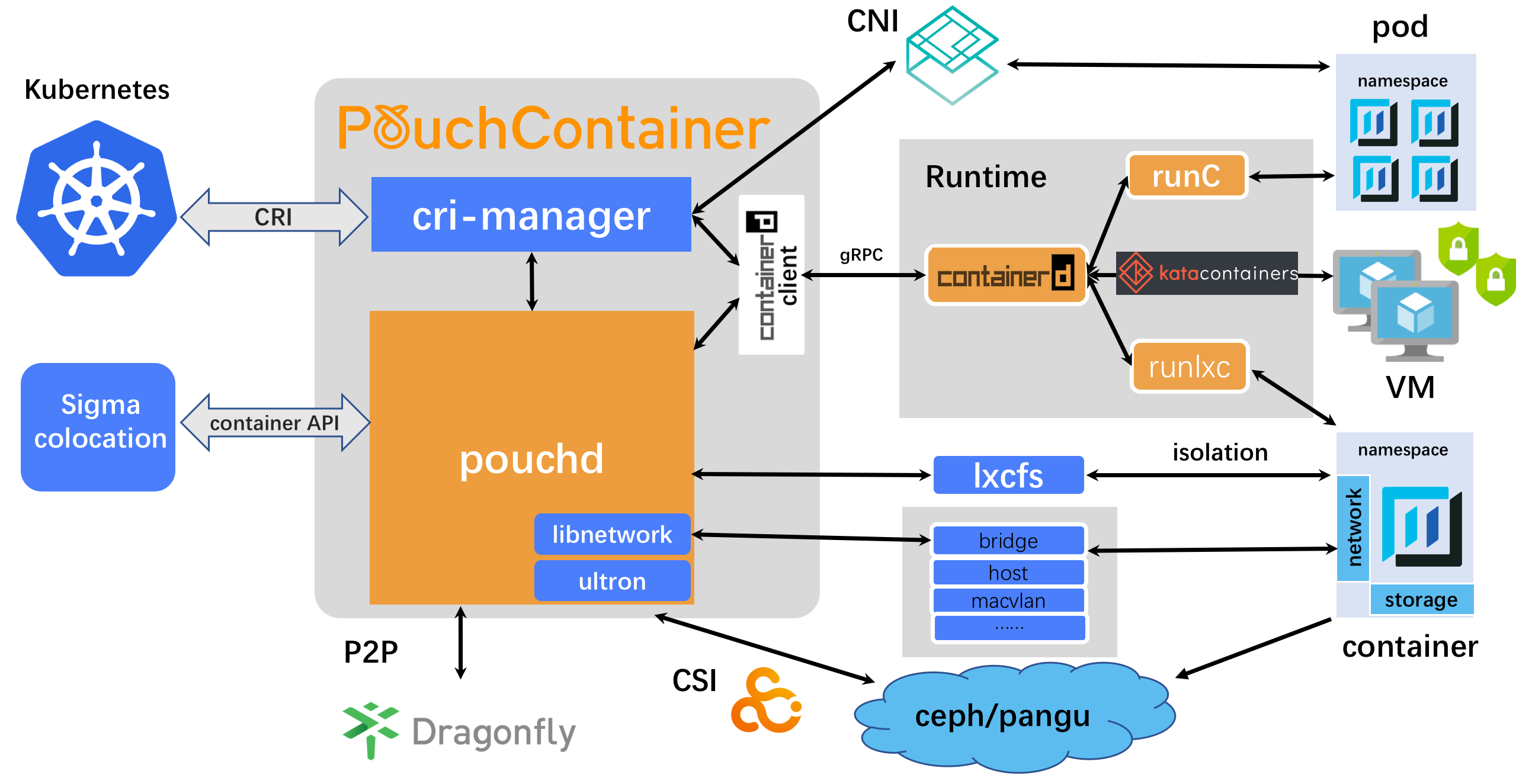PouchContainer – How OCI Specifications Power Alibaba
By Allen Sun, Alibaba Group
PouchContainer is an open source container project created by Alibaba Group to be enterprise ready and promote OCI container standards. The project is a fundamental piece of software in Alibaba’s infrastructure, it helps process transactions smoothly on millions of containers.
To become a general container engine for every scenario in production, PouchContainer seeks ways to support several OCI-compatible container runtimes. This action makes container service totally out of box:
- runc: container runtime based on Linux cgroups and namespaces;
- katacontainers: container runtime based on hypervisor; and
- runlxc: container runtime based on LXC especially on legacy kernels.
Architecture Based on OCI and Open Source Components

Three OCI-compatible runtimes are listed in the middle right part of architecture.
Features
PouchContainer’s most important features are:
- Rich container: Besides the common ways of running container, PouchContainer includes a rich container mode, which integrates more services, hooks, and many others container internals to guarantee containers running like usual.
- Strong isolation: PouchContainer is designed to be secure by default. It includes lots of security features, like hypervisor-based container technology, lxcfs, directory disk quota, patched Linux kernel and so on.
- P2P distribution: PouchContainer utilizes Dragonfly, a P2P-based distribution system, to achieve lightning-fast container image distribution.
- Kernel compatibility: Enables OCI-compatible runtimes to work on old kernel versions, like linux kernel 2.6.32+.
- Standard compatibility: PouchContainer keeps embracing container ecosystem to support industry specifications such as CNI, CSI and so on. Kubernetes Native: PouchContainer has natively implemented Kubernetes Container Runtime Interface (CRI).
Learn more about PouchContainer
PouchContainer brings many additional features to end-users. Want to learn more? Please visit the PouchContainer GitHub, where the PouchContainer community is currently busy preparing the 1.0.0 GA release.
